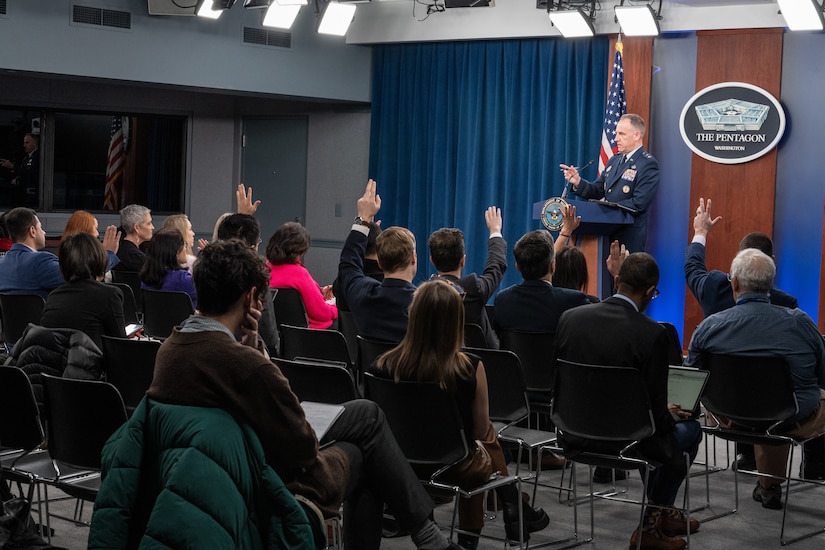Ukraine’s battle against Russia should concern the whole globe, Pentagon Press Secretary Air Force Maj. Gen. Pat Ryder said today during a news conference.
What happens to Ukraine has consequences not only to that country but nations throughout Europe and into the Indo-Pacific.
It will most likely be absorbed into Russia. However, there is no guarantee that Russian President Vladimir Putin would be satisfied with just that. “Broadly speaking, past performance is usually an indicator of future performance,” Ryder said. “We’ve seen Russia conduct ‘gray zone’ operations. We know that their goal, which they have failed at, was to eliminate Ukraine as a nation.
“So, the concern here is, yes, if Putin were allowed to win, Russia won’t stop [and] they will move on to other countries with attempts to either invade or destabilize,” the general continued.
That situation could put NATO allies under direct Russian threats, Ryder said. The United States and all other NATO nations would defend those allies under Article 5 of the Washington Treaty that established the alliance 74 years ago. It “would be something that we would obviously take very seriously,” Ryder said. “So, again, this is why Ukraine matters. It’s not just about Ukraine. It’s about international security, not only in Europe but also globally.”
The United States has been stalwart in its support of Ukraine since Russia invaded in February 2022. “That’s why the United States has committed more than $44 billion in security assistance to Ukraine’s brave defenders,” the press secretary said. “The Department of Defense will continue to work closely with our allies and partners worldwide to support Ukraine as it fights for freedom and to meet the clear objectives set out by President Joe Biden.”
The United States will also continue to support its Israeli allies. “The department also continues to stay actively engaged in our objectives related to the current situation in the Middle East region, which are to protect U.S. forces and citizens, support Israel’s inherent right to defend itself, work closely with Israel to help secure the release of hostages from Hamas, and ensure the crisis doesn’t escalate into a broader regional conflict,” Ryder said.
The press secretary said Secretary of Defense Lloyd J. Austin III will travel to the Middle East next week to meet with leaders in Bahrain, Qatar and Israel. The secretary will also meet with service members deployed to the region “to thank them for their service and for all that they and their loved ones do for our nation,” Ryder said.
The United States is working with allies and partners in the region on activities in the Red Sea. The Iranian-backed Houthis in Yemen continue to threaten shipping in that critical sea line of communication. “We’re continuing to take the situation in the Red Sea extremely seriously,” Ryder said. “There should be no doubt about that. The actions that we’ve seen from these Houthi forces are destabilizing, dangerous, and clearly violations of international law. This is an international problem that requires an international solution. We do continue to consult closely with our international allies and partners on implementing a maritime task force.”
Ryder said DOD will make more details of the force available as the allies and partners continue their negotiations.
In the meantime, U.S. Navy ships “continue to patrol the international waterways throughout the region to support freedom of navigation and efforts to ensure safety, security and stability,” he said.
Ryder said those ships in the region will continue to take all measures deemed “necessary and appropriate including to protect against actions in the maritime domain that could threaten our forces.”









